



VOLUME 6, ISSUE 07 APRIL 27, 2018
Join Us In Prayer
Regional Prayer Requests Page
You Can Always Find Current Global Prayer Requests and Praises on the
NMI Prayer Mobilization Line
Latest News
You Can Always Find Current Global Prayer Requests and Praises on the
NMI Prayer Mobilization Line
Latest News
 Project Biliran Recovery: “Biliran is for Christ”
Project Biliran Recovery: “Biliran is for Christ”“Biliran is for Christ” is the battle-cry as the mission team led by Sta. Fe Church of the Nazarene stepped in the province for the first time with prayers that out of the initial approach, a church will be born, grow and eventually multiply in the area. Biliran Island is a province located in the Eastern Visayas District.
Ninety-six (96) children, aged 5-14 years old, were present and officially registered in the first Vacation Bible School (VBS) at Brgy. Caray-caray, Naval, Biliran. The VBS, integrated with Child Safety in Disaster (CSD), started on Thursday, April 19 and will end on April 22, 2018.
Jethelyn Marco, the wife of Pastor Nick Marco (Sta. Fe), said she is optimistic the numbers will increase by the day. “By experience, 2nd day is a surge of attendance,” Jeth said.
Pastor Nick Marco has no let up in leading prayers and encouraging every member of the team to spend time in prayer that God will move in the hearts of the children and their parents as the actual ministry starts in the area.
Thanks to the village chief, Brgy. Capt. Jeffrey Merez, who had been accommodating to us by providing their two (2) Day Care Centers for our use of Caray-caray center being our billeting area and Sto. Ilawod center as the VBS venue.
Kap Merez has been extra kind by dedicating a barangay vehicle used for water supply to us. The village has been experiencing water problems after Typhoon Yolanda and the situation worsened after Typhoon Urduja. There is no water coming out of faucets during the daytime. So the local government has to provide water ration regularly to affected households.
Parents of the Day 1 participants have already been asking if there are activities intended for adults. We answered in affirmative. By Saturday, we will be distributing water filters courtesy of Nazarene Compassion Ministries – Philippines (NCM-P) through Nazarene Disaster Response (NDR).
Most of the 300 families affected in Sto. Ilawod get their drinking water directly from the faucet making them, including children, vulnerable to water-borne diseases. We will be teaching them how to use the filter, of course, after sharing to them that Jesus is the Spring of Living Water.
After these initial victories, it is safe to say that indeed Biliran is for Christ. That, however, does not exempt us from challenges ahead. We intend to make a long-term presence in the area. We need to support the workers who will sustain all the works in the area. We need to have faith that God will provide all the necessary elements so that we can make Christ-like disciples in this part of the district.
Writer: Ptr. Bryan M. Azura
 NCM Philippines rolls out Sphere Project to 11 Districts
NCM Philippines rolls out Sphere Project to 11 DistrictsThe Nazarene Compassionate Ministries – Philippines (NCM-P) through the Nazarene Disaster Response (NDR) commenced the roll out of Sphere Project to the eleven (11) districts of the Philippine Church of the Nazarene on April 10-12, 2018 at Christian Development Center, Tagaytay City in a desire to improve and upgrade the approaches and implementations of its humanitarian responses.
The Sphere Project is a voluntary initiative that brings a wide range of humanitarian agencies together around a common aim – to improve the quality of humanitarian assistance and the accountability humanitarian actors to their constituents, donors and affected populations. The NDR is a part of Sphere community. Leody Echavez, NCM-P National Coordinator, in his talk to the participants said that there is a great need for the church to upgrade its humanitarian approaches as in many cases, it is among the first responders when disasters or calamities strike.
Stephen Gualberto, Philippine-Micronesia Field Office Strategic Coordinator, said that the church people coming from all districts in the country need to understand humanitarian charter and minimum standards in humanitarian response especially that the church’s role goes beyond the ordinary disaster response. “We are not like non-government organizations or non-profit organizations that just come and go in their humanitarian response. We are a church and we go beyond than helping affected individuals in times of calamities… we want to bring them to Christ,” Gualberto said.
Baby Amor, National Director of Philippine Relief and Development Services (PHILRADS) and Joy Famador, National Convenor of Christian Convergence for Good Governance (CCGG) served as resource persons for the 3-day activity.
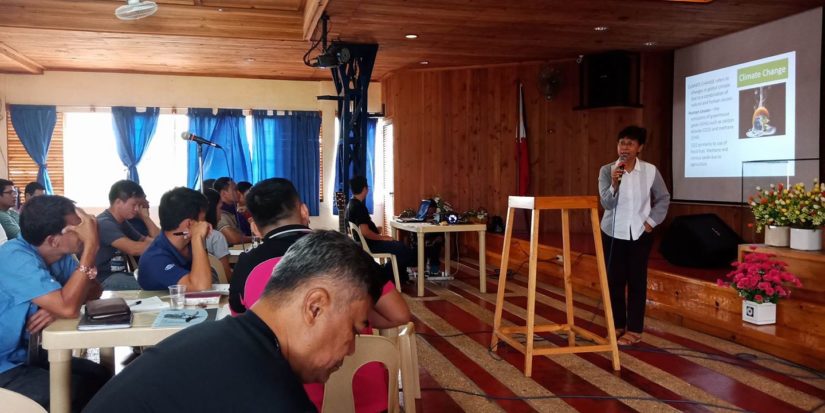 Joy Famador, National Convenor of Christian Convergence for Good Governance (CCGG) speaks about God’s Creation on her Day 1 lecture.
Joy Famador, National Convenor of Christian Convergence for Good Governance (CCGG) speaks about God’s Creation on her Day 1 lecture.John Watton, Asia Pacific Region NCM Director, also attended the event. In his morning devotions emphasized that just like Paul, all the things that are being done by the church including compassionate ministries are intended “so that we may present everyone fully mature in Christ.”
Lemuel Tiberio, a lay leader in Davao Church of the Nazarene and a participant to the training, expressed his excitement to mobilize other lay members to come up with a more organized humanitarian response group in Mindanao East District. Echavez and Gualberto said that they are expecting that every district representing the training will come up with a comprehensive work and action plan as a final output of the workshop.
The training is being attended by 40 participants mostly NCM District Coordinators and pastors from Metropolitan Luzon, Metro Manila, Southern Luzon, Bicol, Eastern Visayas, Central Visayas, Panay, Negros, Mindanao West and Mindanao East Districts. Pastor Nick Marco of Sta. Fe Church of the Nazarene in Eastern Visayas District said that he is glad that the church is now giving importance to this ministry especially that the location of his district is prone to strong typhoons.
Super typhoon “Yolanda” (international name Haiyan) that hit the central Philippines on November 8, 2013, greatly affected many parts of Eastern Visayas and NDR-P was among the responders during the typhoon. “We want to see more prepared Nazarenes if another disaster strikes,” Marco said.
As part of the next steps after the initial rollout, Leody said NCM-P will be conducting Sphere Project training at the district level. (Writer: Ptr. Bryan M. Azura)
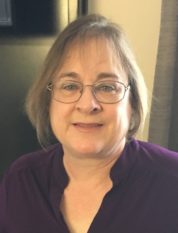
 NTC welcomes new faculty member
NTC welcomes new faculty memberRev. Dr. Linda Stargel
Nazarene Theological College (NTC) is excited to announce our newest faculty member, Rev. Dr. Linda Stargel, who will begin January 2019. Linda will teach in the area of Biblical Studies (primarily Old Testament and Hebrew Language) and will also take over the role of Academic Dean from Rev. Dr. David McEwan, who will continue as Director of Research and Lecturer.
Linda has a Ph.D. in Old Testament from the University of Manchester/Nazarene Theological College (2016). Her areas of academic interest include narrative analysis, identity formation in the Second Temple Period, and retold exodus stories. She has a forthcoming book with Pickwick entitled The Construction of Exodus Identity in Ancient Israel: A Social Identity Approach and is working on an article on “The Exodus of Jesus in Matthew 2.”
Linda also has a Masters in Theology from Duke Divinity School (2007), a Masters in Divinity from the Nazarene Theological Seminary (1994) and a Bachelors of Science in Nursing from Grand Valley State University (1986). She is a native of Michigan but is currently living in North Carolina. She has 11 years of teaching experience as a lecturer in Biblical Studies at the Séminaire Théologique Nazaréen d’Haïti, Pétion-Ville (Haiti), Quebec Nazarene Bible Institute, Quebec (Canada) and Seminario Nazareno Dominicano, Santo Domingo (Dominican Republic). She is fluent in Spanish, French, and Haitian Creole.
Linda was ordained as an elder in the Church of the Nazarene in 1996 following ministry experience as an Associate Pastor of Christian Education at Montreal Grace Church of the Nazarene (1994-95) and as Youth Director of the First Spanish Church of the Nazarene of Kansas City, Kansas (1988-94). She currently serves as Associate Pastor and Children’s Worship Leader at the Powerline Church of the Nazarene in Elon, North Carolina.
Linda has been married for 25 years to Rev. Dr. Scott Stargel who travels internationally as the Director of Global Nazarene Publications. Linda and Scott have two children in college, Nicolas (22) and Rebecca (20). Linda loves to travel, learn new languages, tell stories, and both watch and play sports.
 Renewing Our Mind Part Two: Our Negativity Bias
Renewing Our Mind Part Two: Our Negativity BiasTransformation! I could use some of that! Romans 12:2 says transformation comes by the renewal of my mind; What does that even mean? As we explore this we’re looking at “Cognitive Biases”: Big words that simply mean: natural-ways-of-thinking-that-can-get-in-our-way. What kinds of thinking do we need to confront as we allow space for the renewal of our mind?
Negativity Bias
What Is It?
“The brain is like Velcro for negative experiences and Teflon for positives ones.” – Rick Hanson, Ph.D.
We, humans, have a natural tendency to give more weight and importance to bad experiences than we do to good ones. In fact, some research indicates that negative emotions and experiences have an impact 3-5 times stronger than positive emotions and experiences. Most theories attribute this to learned survival implications. Bottom line is that the consequences of ignoring real dangers and threats (possibly death) are more serious than they are when we miss an opportunity for pleasure or happiness. So, in order to survive, we have essentially learned to pay more attention to the negative, be more attuned to it, remember it better and, therefore, repeat it more often. Dr. Hanson, Ph.D. puts it like this: Your brain is continually looking for bad news. As soon as it finds some, it fixates on it with tunnel vision, fast-tracks it into memory storage, and then reactivates it at the least hint of anything even vaguely similar. But the good news gets a kind of neural shrug: “uh, whatever.” – Velcro for the negative, Teflon for the Positive.
This isn’t always bad. As indicated above, a naïve, approach to life with no caution or awareness of that which might threaten our survival would leave us incredibly vulnerable to harm or even death. And really this isn’t even something we do intentionally; it’s a part of our built-in survival instinct. So, what’s the problem?
Why Does It Matter?
The problem is when we allow this bias, intended as a caution mechanism, to distort the way we see ourselves, others, and the world we live. We can come to ignore those things that are positive in our lives. We could actually move to the place where we filter out of our awareness the ways that God shows up in our every-day lives – we can lose our sensitivity to beauty, love, joy, comfort, hope. Ultimately, if we lean too hard into this negativity bias and allow it to grow unchecked, we can forget the very basis for truth. It can begin to shape who we are and what we believe. When I look for reasons to believe the world is negative or hopeless, I will see them, and when I see that the world is negative and hopeless, I will look for reasons to believe the world is negative and hopeless, and when I look for reasons to believe the world is negative and hopeless… (see where this goes?) I have wondered if this is what Jesus is talking about when he warns, “… if your eyes are healthy, your whole body will be full of light. But if your eyes are unhealthy, your whole body will be full of darkness….” (Matthew 6:23)
What does your brain on negativity look like? Research indicates that people with an overall mindset that gives heavy attention to the negative, ignoring the positive, is significantly vulnerable to fear, anxiety, stress, pessimism, regret, cynicism, burnout, anger, depression and unresolved conflict. In addition, this mindset leads to low resilience, slower recovery from illness and trauma, and increased negative effects from past painful experiences.
What Can We Do About It?
Just because our negativity bias is built-in doesn’t mean we have no control over it, nor does it mean we should pretend all is well and ignore the real pain and hard places in our lives. But we can challenge the negative beliefs that come from this bias and in so doing we re-establish the basis for truth.
- Self-awareness is the first step. Just knowing this is a natural bias of our mind has some pretty big implications. We all have it, so let’s not assume it isn’t there and let’s get intentional about containing it and keeping it in its place.
- Next, we can practice self-compassion. Instead of being self-critical, let’s allow God’s grace to flow through us to ourselves and practice being patient, kind and loving to ourselves. What does God think about me?
- Practice compassion toward others. Understand that everyone deals with their own negativity bias. We can be more generous with our grace and understanding when we encounter it in our relationships. Am I reinforcing your negative bias or am I offering a positive alternative?
- Practice gratitude. This is one of the most effective ways to give attention to the positive. As we notice, talk about and maybe even journal what we are thankful for, we are training – renewing our mind to look for and notice what we are thankful for… and then? We will eventually start seeing more of what we are looking for!
- Celebrate! One of the ways we can increase our sensitivity to the positive is to get intentional and creative about the ways we take time to honor and appreciate each other, beauty, happiness, laughter and the good things in our lives. By celebrating, we reinforce the value and impact of these positive experiences and relationships in our mind – that’s renewal!
- Be realistic. This is not a move to “positive thinking” that ignores realistic evaluation or removes our capacity to acknowledge pain. There is a way to experience pain in a way that honors God and others. We need to be real by acknowledging potential risks and even learn to value the experience of shared suffering; but to do so with a balanced eye for truth, goodness, hope, and beauty will make us more authentic and open to the path of healing.
- Neuroscience indicates that it is very difficult (if not impossible) to stop thinking about something or feeling an emotion. However, it is highly possible, and very effective to replace one thought or emotion with another. As we become more aware of how this negativity bias is showing up in ways we don’t want it to, we can make choices to direct our attention toward more healthy thoughts and experiences, or at least entertain a perspective that offers balance. When we have a hard time coming up with something positive to think about, we have some help: “Summing it all up friends, I’d say you’ll do best by filling your minds and meditating on things true, noble, reputable, authentic, compelling, gracious – the best, not the worst; the beautiful, not the ugly; things to praise, not things to curse…”(Phil 4:8-9msg) Hmmm.. maybe I’ll start a list….
- Get coached. Sometimes we just need someone to partner with us, helping to reframe and holding us accountable until new thought habits can be formed. Contact me to find out more about working with a professional Life Coach to design a strategy for overcoming negativity.
Announcements
Hiring English Teachers for Malaysia – INQUIRE NOW!
Dynamic Language Centre is accepting applications for full-time language teachers in their English language center in Penang, Malaysia. The newly renovated center has been in the business for over 15 years. While they teach many languages, children’s and adult English are their main focus. If you are an experienced children’s teacher, enjoy a wide mix of cultures from Asia, the Middle East, and North Africa, and are looking for a rewarding career- we have an opportunity for you!
Dynamic Language Centre is accepting applications for full-time language teachers in their English language center in Penang, Malaysia.
The newly renovated center has been in the business for over 18 years. While they teach many languages, children’s and adult English are their main focus.
If you are an experienced children’s teacher, enjoy a wide mix of cultures from Asia, the Middle East, and North Africa, and are looking for a rewarding career- we have an opportunity for you!
Candidates should be:
Hiring English Teachers for Malaysia – INQUIRE NOW!
Dynamic Language Centre is accepting applications for full-time language teachers in their English language center in Penang, Malaysia. The newly renovated center has been in the business for over 15 years. While they teach many languages, children’s and adult English are their main focus. If you are an experienced children’s teacher, enjoy a wide mix of cultures from Asia, the Middle East, and North Africa, and are looking for a rewarding career- we have an opportunity for you!
Dynamic Language Centre is accepting applications for full-time language teachers in their English language center in Penang, Malaysia.
The newly renovated center has been in the business for over 18 years. While they teach many languages, children’s and adult English are their main focus.
If you are an experienced children’s teacher, enjoy a wide mix of cultures from Asia, the Middle East, and North Africa, and are looking for a rewarding career- we have an opportunity for you!
Candidates should be:
- Native English speakers
- 4-year University degree holders
- Experienced in teaching children
- TESOL certified
Teaching Opportunity in Malaysia!
Name *
Email *
Qualifications: *
I verify that: 1) English is my First Language, 2) I have a 4-year university degree, 3) I have had experience teaching children, 4) I am TESOL Certified.Yes, I have the above qualifications.
Additional comments
ATR Newsletter *
May we include you in our weekly Around The Region email newsletter? It is released each Saturday with updated Praise Reports, Prayer Requests, and inspirational stories of God working on the region.Yes please!No thank you.I am already a subscriber.
Verification
Please enter any two digits *Example: 12
Read More
Links You Might Like!
Articles
Articles
- MNU alumnus hailed as hero after completing emergency landing
- Maniram's Story
- The librarian
- Argentina youth share gospel through games, songs
- UK church members help save lives through train ministry
- India pastor, wife save abandoned child
- In Memoriam
- 2017-2021 Manual of the Church of the Nazarene
- Articles of Faith
- Engage Magazine
- Holiness Today
- JESUS Film Harvest Partners
- Mission Corps - Global Volunteer Mission Opportunities
- Nazarene Compassionate Ministries
- Nazarene Essentials
- Nazarene Missions International
- Church of the Nazarene (Official Global Site)
- Nazarene Safe
- Nazarene Youth International
- Preacher's Magazine
- Sunday School Discipleship Ministries
- Work and Witness
The Global Church of the Nazarene Asia-Pacific
Ortigas Avenue Extension
Kaytikling, Taytay, Rizal, Manila 1920 Philippines
The Global Church of the Nazarene Asia-Pacific
The Global Church of the Nazarene Asia-Pacific
Ortigas Avenue Extension
Kaytikling, Taytay, Rizal, Manila 1920 Philippines
***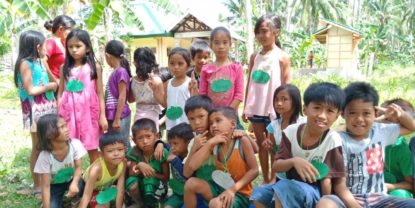
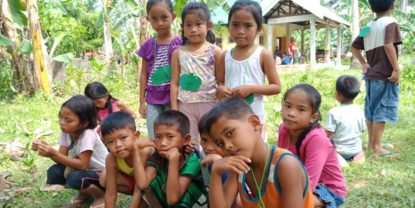
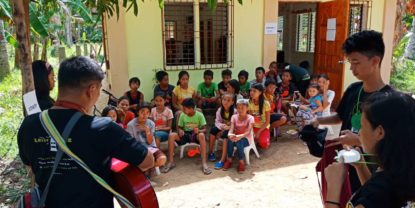
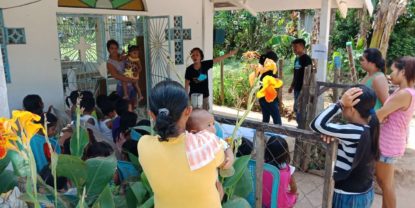
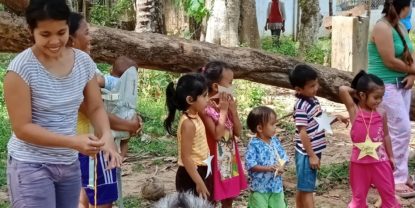







No comments:
Post a Comment